How young Americans view the U.S. military strikes on Iran
In the lead up to the Iraq War in 2003, younger Americans were just as supportive of U.S. military action as their older counterparts. In 1965, younger Americans were less likely to think it was a “mistake” to send more troops to Vietnam.
Newer generations view the U.S.’ role in the world differently.
With the dust seemingly settling between the U.S. and Iran, we can get a clearer picture of how young Americans feel about the U.S.’ involvement in the Middle East. New polling shows that younger Americans are less supportive of the U.S. military strikes in Iran – and of the U.S. taking a role in global affairs in general.
Below are five charts on how Americans view U.S. involvement in the Middle East and the emergent generation gap on U.S. foreign policy.
- Low levels of support. Though many young Americans are unsure how to feel about the U.S. airstrikes, there is significantly lower support for the airstrikes among younger Americans.
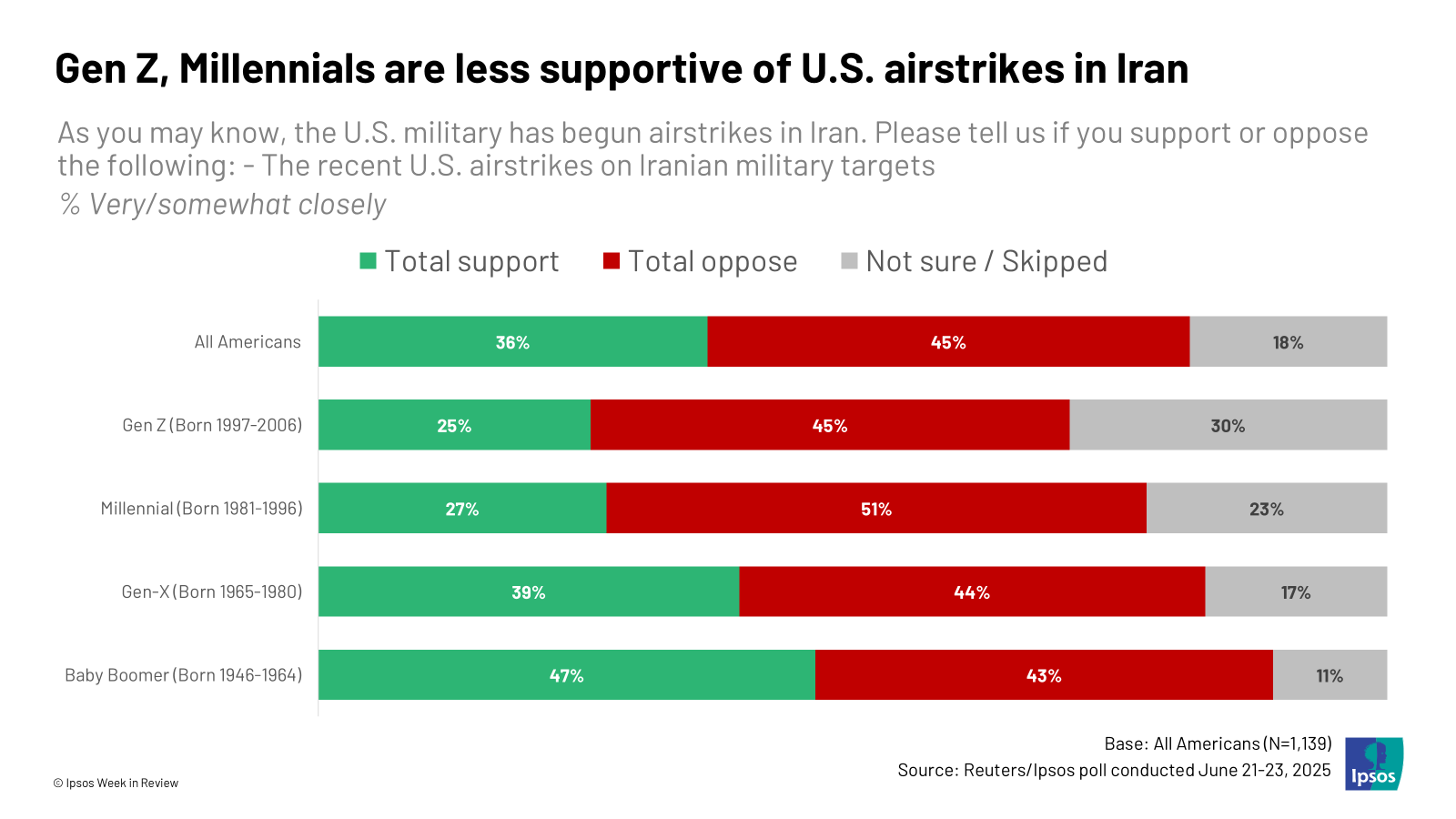
- Partisan age gap. Partisanship is a major factor in how Americans view the airstrikes. But it’s not just partisanship. There’s a distinct gap in support for the airstrikes between young and old Republicans and independents.
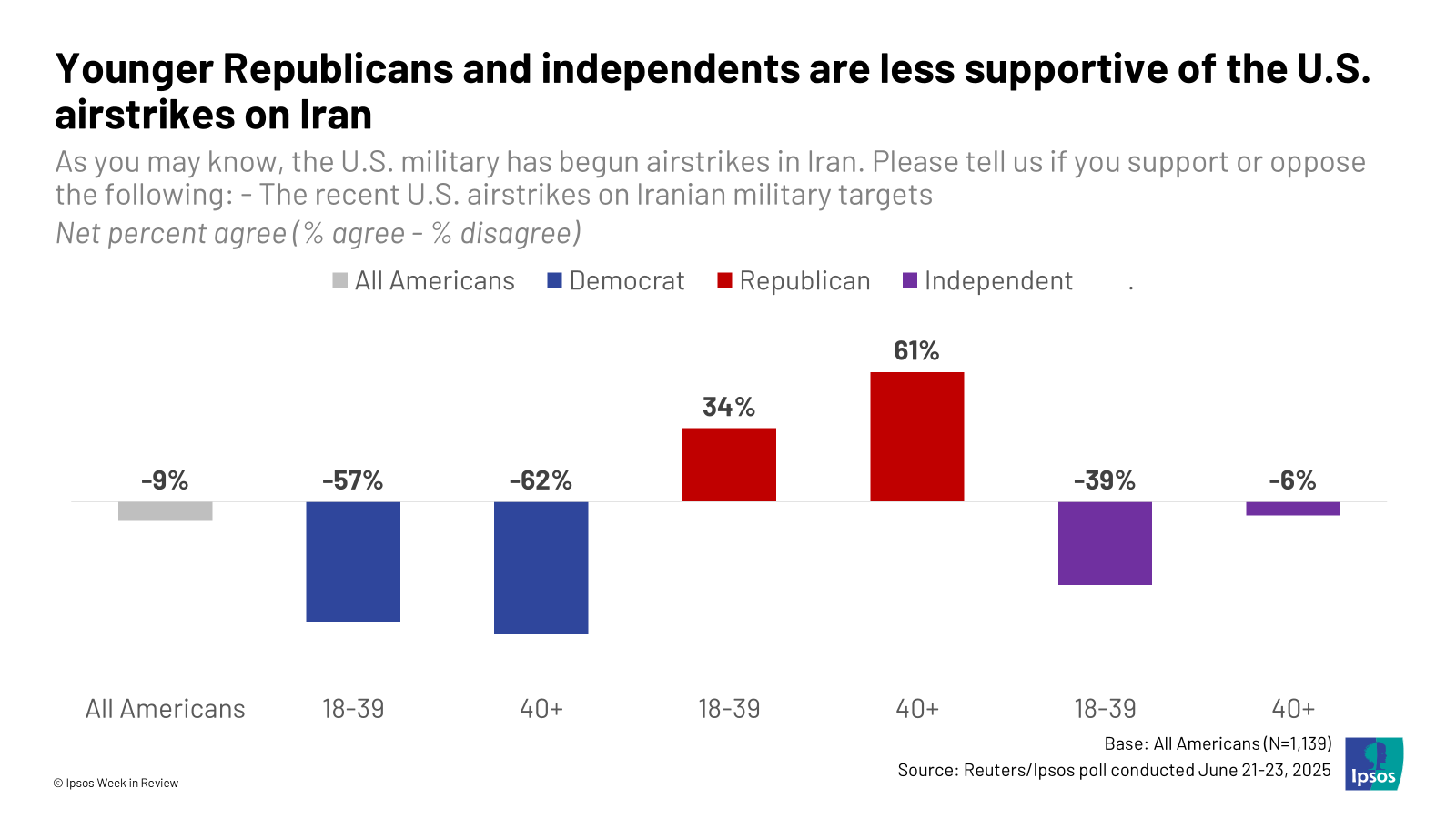
- Not an interventionist generation. In general, Gen Z and Millennials are more likely to think that it is better for the nation if U.S. stays out of other nations’ affairs.
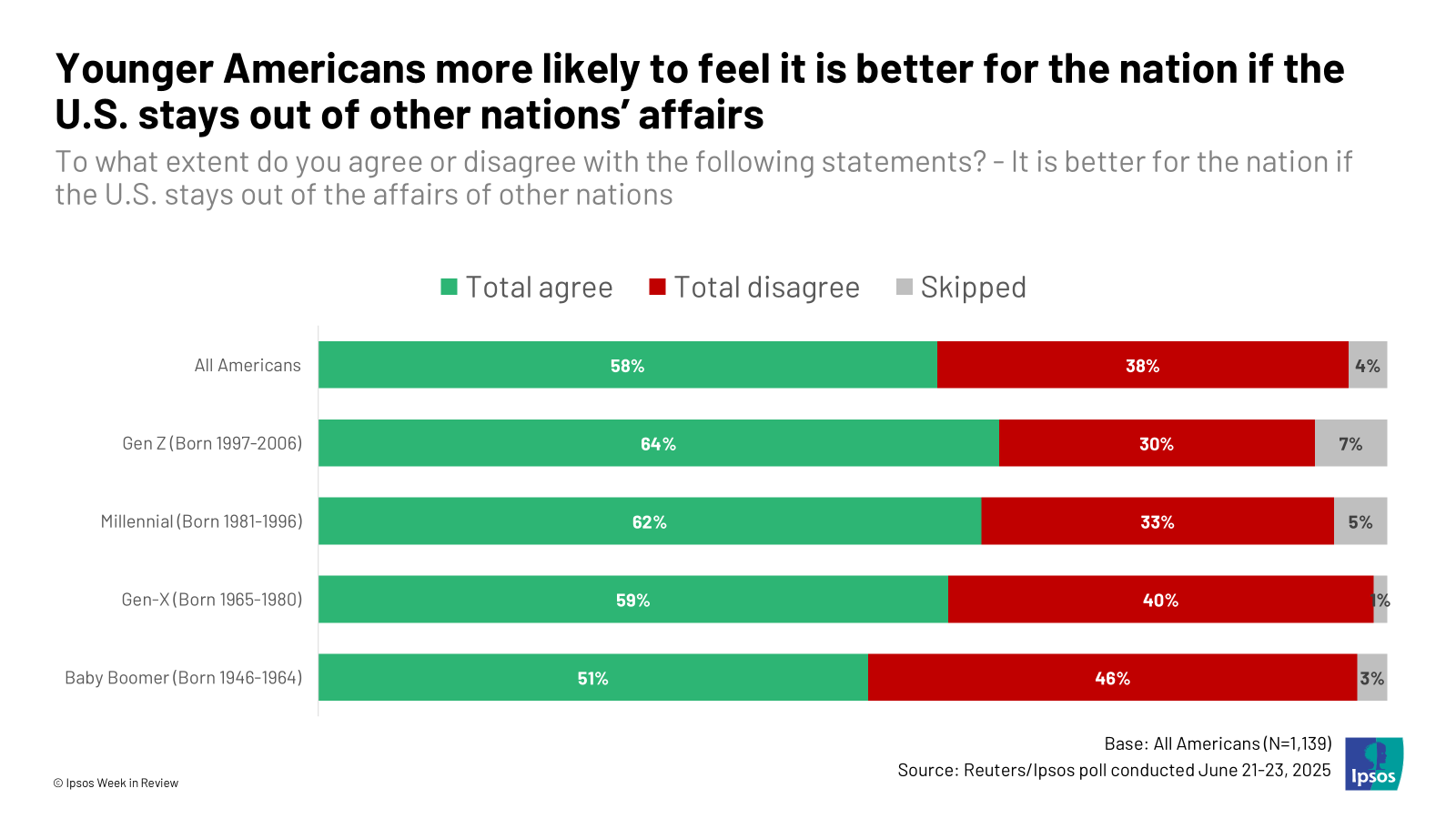
- This holds across partisanship. Younger Republicans, Democrats, and independents alike are more likely than their older counterparts to feel it is better for the U.S. to stay out of other nations’ affairs. Put simply, younger Americans don’t see the benefit of the U.S.’ role as interventionist.
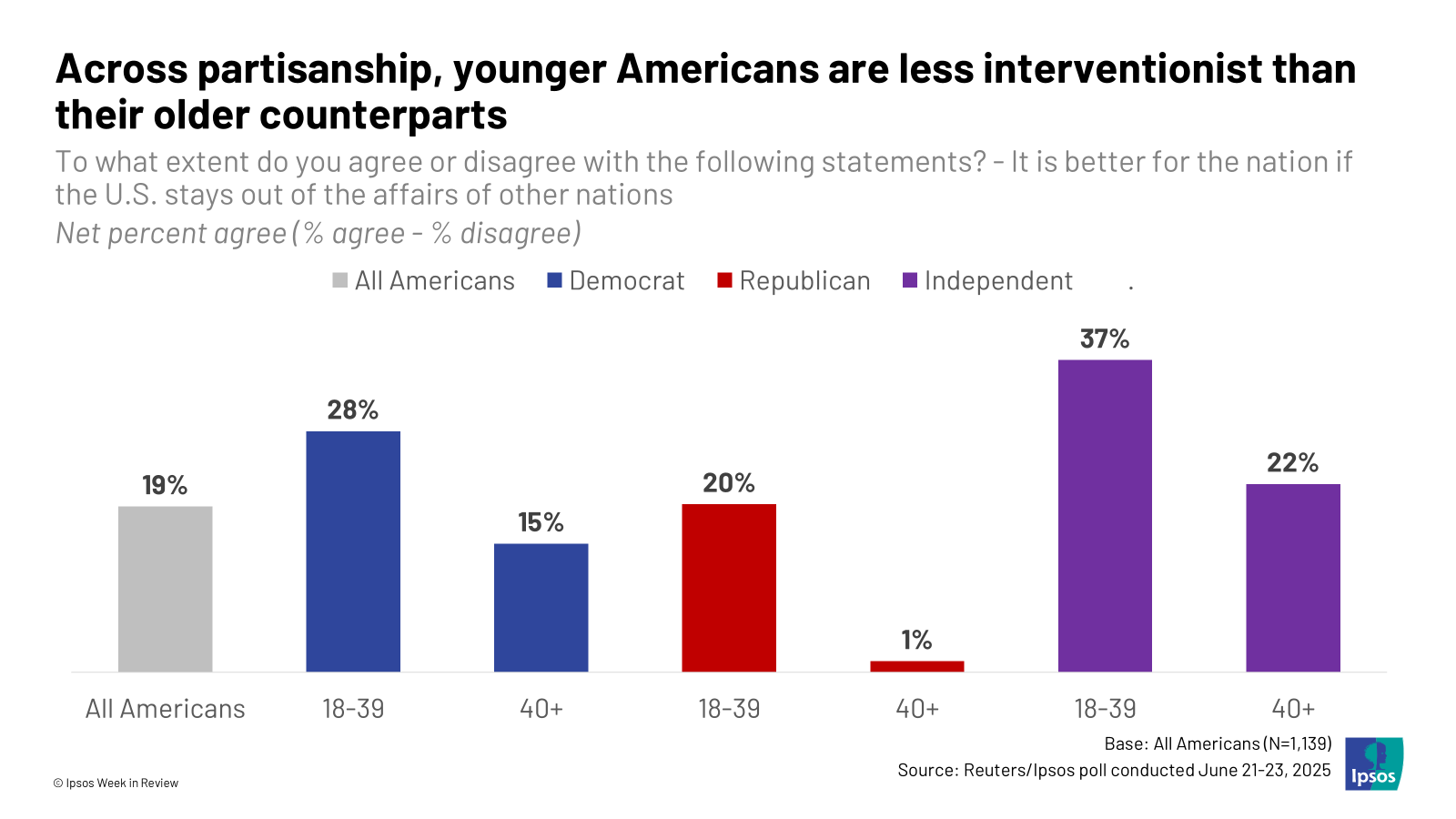
- Issue by issue basis. Yes, younger Americans generally feel it’s better for the U.S. to stay out of other nations affairs. But it’s not black and white: younger Democrats feel more attached to the problems of Ukraine, younger Republicans feel more attached to the problems of Israel.
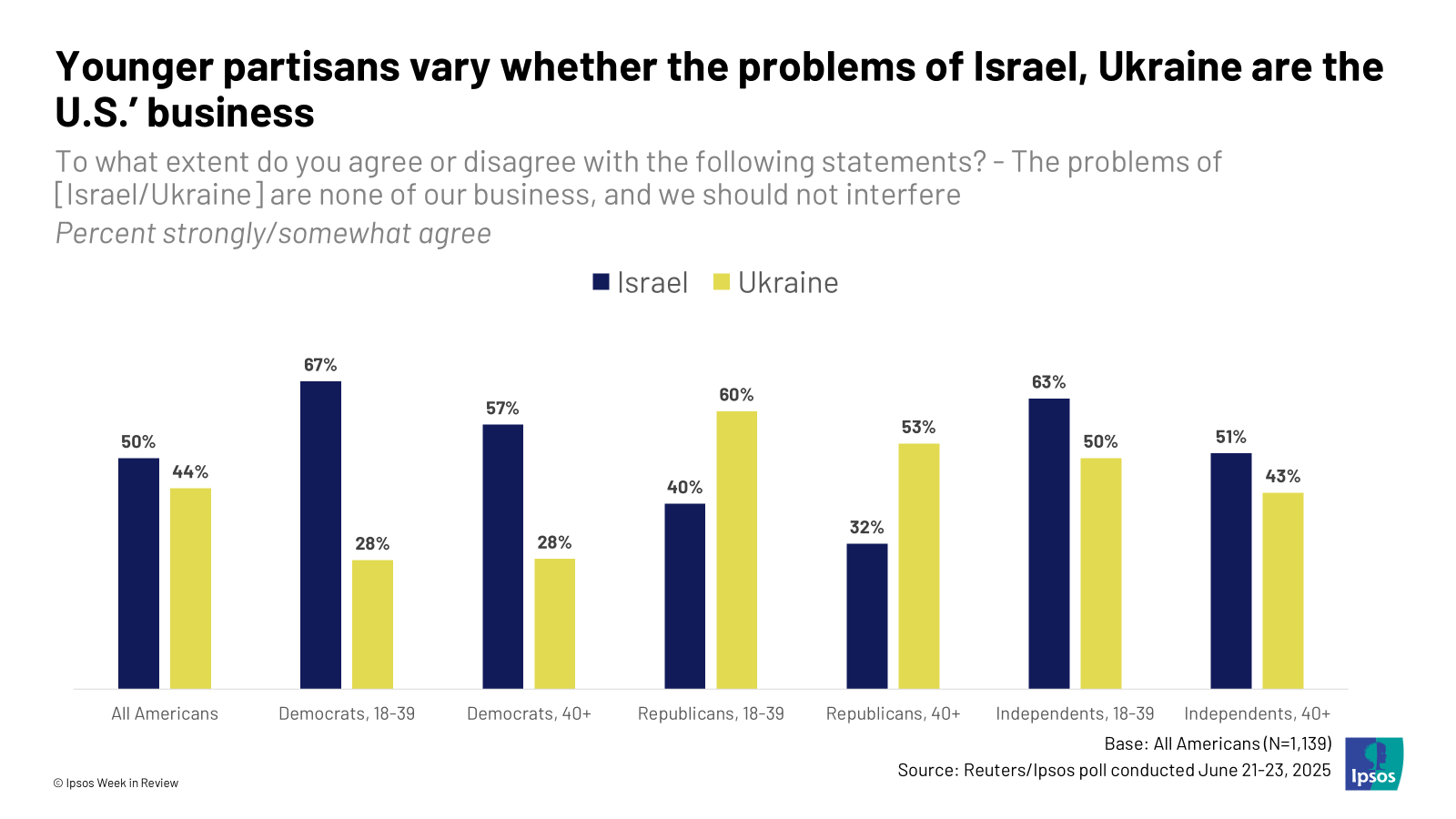
Why are younger Americans less in favor of the U.S. as interventionist? One reason could be a decline of American exceptionalism. Or just a desire to focus on issues closer to home.
Whatever the case, this appears to be a feature, not a bug, of the New America. As Gen Z and Millennials get older and as generational replacement occurs, this anti-interventionist slant will shape politics and U.S. foreign policy for years to come.


